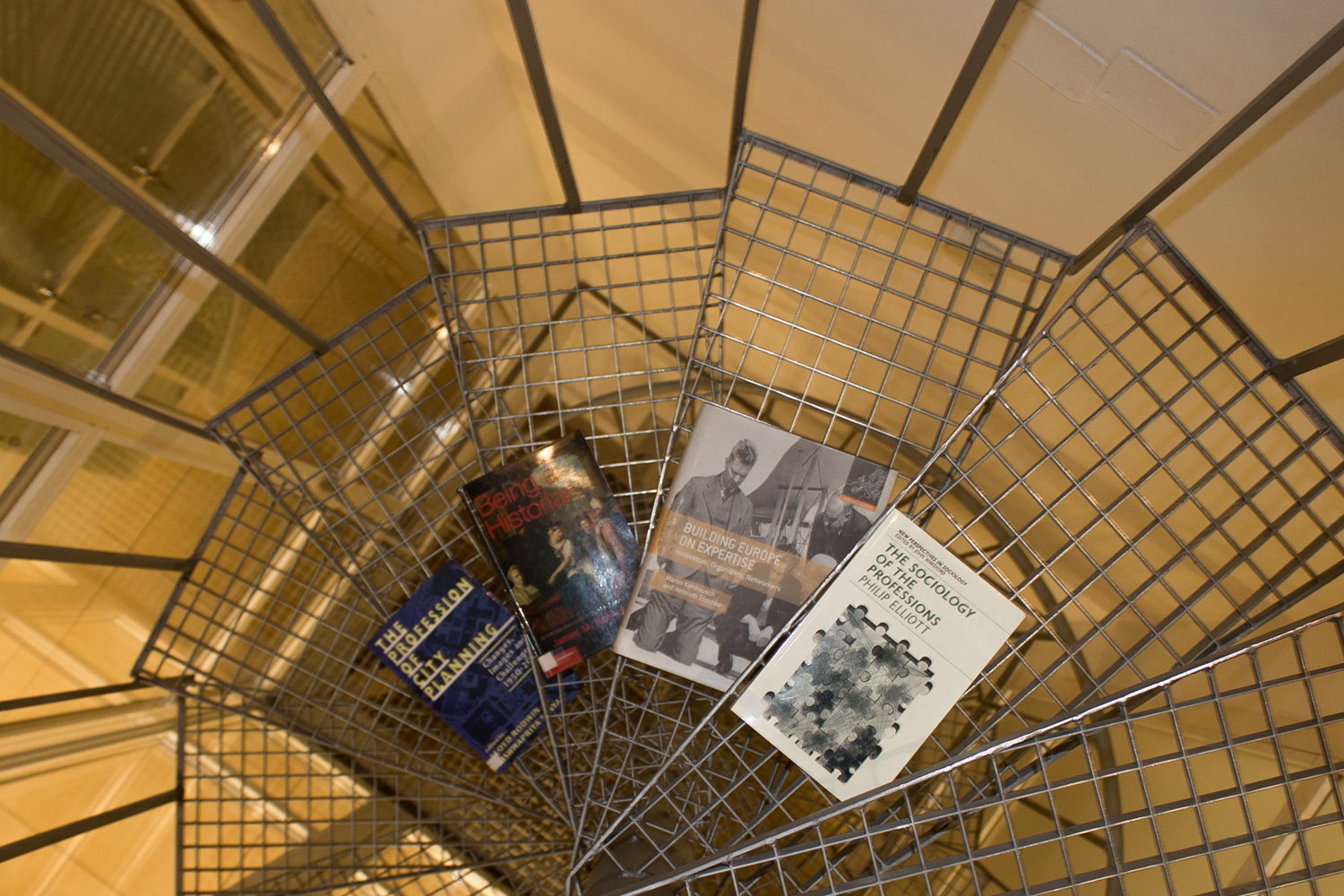Experts and Professionals
31.05.2018
Who are the people we trust in decision-making and refer in statements? How do they acquire their expert status? How has the social and gender composition changed of the persons we call professional men and women in the fields of history and urban studies? In order to find answers to these questions let us check our library.
To start with, understanding the topic of expertise would be best referred to in the book by Philip Elliott "The Sociology of the Professions." The author uses an illustration of British society to explore the link between social structure and the emergence and development of professions. He emphasizes the difference between a profession and an occupation, and shows how education, socializing, and deepened labour divisions shape a group of professionals: people who are autonomous enough to make evidence-based decisions, who perform non-routine tasks and expand their professional identity and subculture. "Ideal type" professional, according to Elliott, is a "man without leisure" who places work in the center of life priorities and treats it as serving to community (or mankind in general).
Most examples Philip Elliott uses come from medicine and law. Another group of expert men and women who plan for urban development is in the focus of a volume "The Profession of City Planning: Changes, Images, and Challenges, 1950-2000" edited by Lloyd Rodwin & Bishwapriya Sanyal. It takes us from the UK to the USA and suggests to have a look at the transformations of urban and regional planning in terms of mobility, housing, and environmental policies. This book discusses the image of a profession of an architect and urban designer, how it has been shaped through the last 70 years, and which prospects and challenges will be faced by this expert area in the future. The volume consists of 35 theme-based authors chapters. Thus, everyone will be able to find some affinity therein. The book can be especially recommended to those interested in urban studies as it provides for a great historical context to understand contemporary discussion in the area of urban planning.
As representatives of an institution interested in the past, we are constantly thinking about what does it mean to be a historian. Answers to some professional challenges can be found in a book by James M. Banner, Jr. "Being a Historian: An Introduction to the Professional World of History." A student of Richard Hofstadter, graduate from Yale and Columbia Universities, the author explores his 50+ year experience of a historian who used to work both in academic and non-academic fields. He presents his work not as an introduction to history or a guidebook, but rather as a set of reflections upon an intellectual landscape of the profession with account for peculiarities of institutions and practices in the field of history in the US. The author is mapping historical discipline through the prism of professional associations, university units, and editorial boards; he presents a number of opportunities to "practice" history and build professional career (in the academia and beyond); he analyzes formats and media to communicate with different audiences. For him, history is primarily a moral discipline. That is why James Banner concludes the book with reflections on ethics, values, and freedoms of the profession, and responsibility of men and women who represent it. After all, being a historian is always about a range of possibilities and continuous choice within the boundaries of specific entities we are empowered to change.
To conclude, in order to define the immensity of the role of expert knowledge, enjoy the second volume in the book series of "Making Europe: Technology and Transformations, 1850-2000" – a work by Martin Kohlrausch and Helmuth Trischler "Building Europe on Expertise: Innovators, Organizers, Networkers." The authors take the 20th century as "long" and shift the focus to the development and enhancement of infrastructures, as well as building continental networks. Key question they pose to themselves is how technological experts impacted Europe and how Europe defined the destiny of the experts. The first part of the collection focuses on the topics of institutionalization of vocational education and training and attempts to systematize and arrange the knowledge; the second part presents different strategies and individual biographies of experts under circumstances of risk when the continent was coming closer to the World War II and was crucially transformed later. The book uses examples of "Faustian bargains" of Konrad Meyer-Hetling, Guglielmo Marconi, and Trofym Lysenko to show how experts adjust to totalitarian regimes and contribute to their enhancement. At the same time, a number of experts were forced to leave their countries, which, for instance, marked an intellectual turn in mathematics, and shifting the research center to the U.S. Eventually, the third part of the book is about cooperation in the field of nuclear energy and space industry that go beyond the national borders and unites professional men and women from different areas, as well as possibilities for enlarging the European community of experts, especially in the context of globalization.
You are warmly invited to reading, to expanding your own expert area, and, please, be reminded that the library operates from Monday to Thursday, from 10 a.m. to 6 p.m., and from 10 a.m. to 5 p.m. on Friday.
Review by Natalia Otrishchenko
Credits
Сover Image: Center for Urban History
